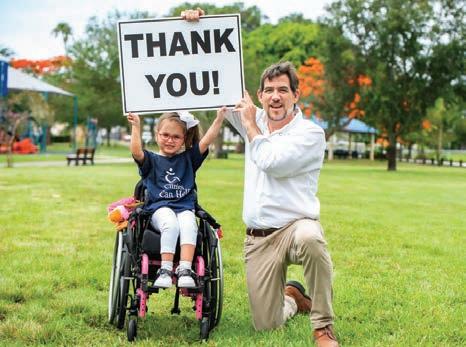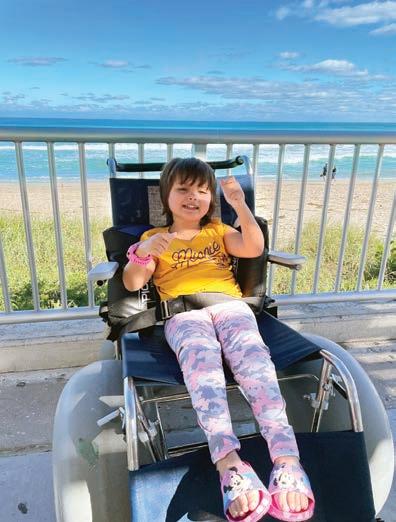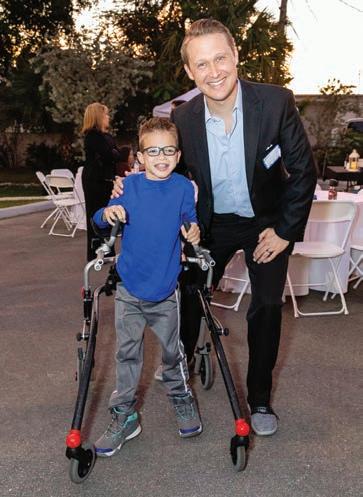
2 minute read
GIVING GEAR
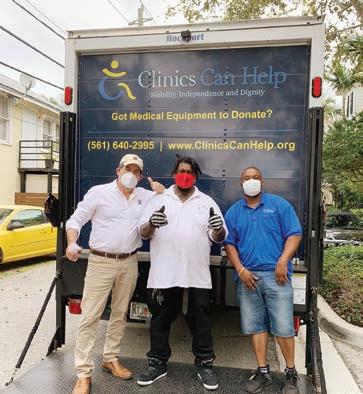

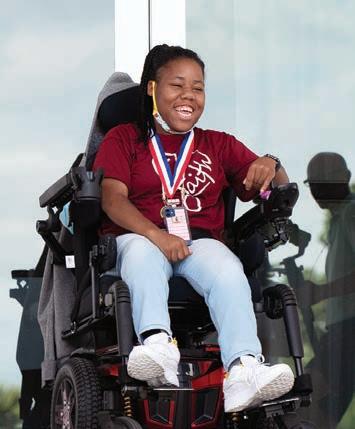

GivingGear
Clinics Can Help puts unused medical equipment into the hands of people who need it most
By Christiana Lilly
All Zoe wanted for her sixth birthday was to go to the beach—but the simple request was almost impossible for her. She would need a beach wheelchair, which would cost more than $1,000 to rent for a single afternoon.
Enter Clinics Can Help, a West Palm Beach–based nonprofi t that gets medical equipment to those in need. They secured a beach wheelchair for Zoe, enabling her to enjoy a day with the sand on her toes and the waves rushing across her feet.
“It was amazing; she had such a good time,” says Zoe’s mother, Lynn Vera. “It’s an organization that really, really just cares about the recipients. They go above and beyond.”
Founded in 2011, Clinics Can Help has provided more than $12 million worth of medical equipment to people in Palm Beach County and elsewhere. The nonprofi t assists more than 3,200 people per year, and they don’t turn anyone away.
“Getting the medical equipment is very easy,” says Owen O’Neill, the organization’s founder and CEO. “I bet if you think about it, you’ve probably seen a wheelchair or a walker or a nebulizer in the back of a friend’s house. People have them all over the place, and [they often] want to donate them to someone who can actually use them.”
As a hospital nurse, O’Neill witnessed patients reinjuring themselves when they couldn’t afford medical equipment like bed rails, walkers, or wheelchairs. When he transitioned to hospice work, he saw the opposite end of the spectrum— a surplus of equipment left over after patients died and families eager to donate it.
In 2002, he collected the items to sanitize, inspect, and redistribute, starting with a walker and a wheelchair that he transported in the back of his truck. He juggled full-time work with his newfound passion. In 2007 he opened an offi ce. He hired part-time staff in 2010 and opened fulltime in 2011.
“If you give someone a wheelchair they can get out of bed, which means they can go back to work, school, or church,” O’Neill explains.
That was the case for Zoe, who has cerebral palsy. When Vera got custody of her as a toddler, she didn’t know where to start (or even what questions to ask). She was referred to Clinics Can Help, who provided her with equipment including an adaptive bicycle that helps work Zoe’s leg muscles, an activity chair so she can sit at the dinner table or work at a sewing machine, and a wheelchair for day-to-day activities.
O’Neill estimates that Clinics Can Help will be assisting 10,000 people per year by 2030. “I love what I do,” O’Neill says. “We are truly making a difference in people’s lives in a way that very few others are or can.” (clinicscanhelp.org) «
